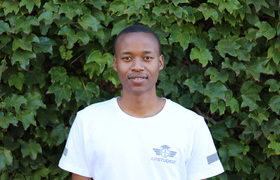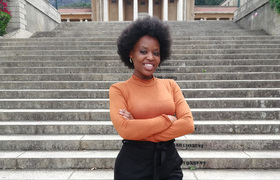UCT student trio named among young global leaders
31 March 2021 | Story Helen Swingler. Read time 10 min.
Three University of Cape Town (UCT) students have been selected among a global cohort of 40 for the Next Generation Leaders programme. This has been designed to harness diverse and ethical approaches to civic engagement and activism.
The programme is an initiative by the Talloires Network of Engaged Universities in partnership with the Mastercard Foundation.
Each of the three, Vuthlarhi Shirindza, Zukile Ntentema and Funwako Dlamini, ticked all the boxes in terms of requirements: a commitment to civic engagement and making a difference in the lives of others through practising good citizenship and social responsibility, by way of their political activism, applied research, social entrepreneurship and other forms of service.
The trio will also participate in the Talloires Network Global Leaders Conference, which will be hosted at Tufts University and Harvard University in the United States from 30 September to 3 October.
Shirindza is a fourth-year medical student and completed an honours in biomedical sciences, majoring in medical biochemistry, at UCT last year. Ntentema is a first-year Bachelor of Social Work student. Dlamini has embarked on a Master of Public Health, specialising in health systems. They spoke to UCT News about their plans to change the lives of others.
Helen Swingler (HS): What does selection for the Next Generation Leaders programme mean to you?
Vuthlarhi Shirindza (VS): It’s offered to me the unique opportunity to connect and converse with like-minded leaders from different corners of the world on a global platform. This is a chance to engage on civil matters that affect us all and dissect these problems from multinational [and] multilevel points of view. But most importantly, I am excited about developing creative, original and practical solutions by joining heads with other leaders so that I can return to my community and make a sustainable and impactful difference.
Zukile Ntentema (ZN): It means that I have an opportunity to sharpen my leadership skills to continue adding value to my community. It also means that I will be part of a community-of-practice network that will learn from me as I also learn from them. It means the world to me.
Funwako Dlamini (FD): It simply means “platform”. This is because I want to be at the centre of decision-making within the public sector, apply evidence-based policy tools and lead global communities committed to the critical issues of the day. I’m confident that the programme will offer me both theoretical and practical knowledge that will be key in employing a critical-thinking approach to making a long-lasting change in underserved populations. It will allow me to meet diverse but like-minded individuals from across the world, turn my passions into tangible solutions and to be unafraid of challenging the status quo.
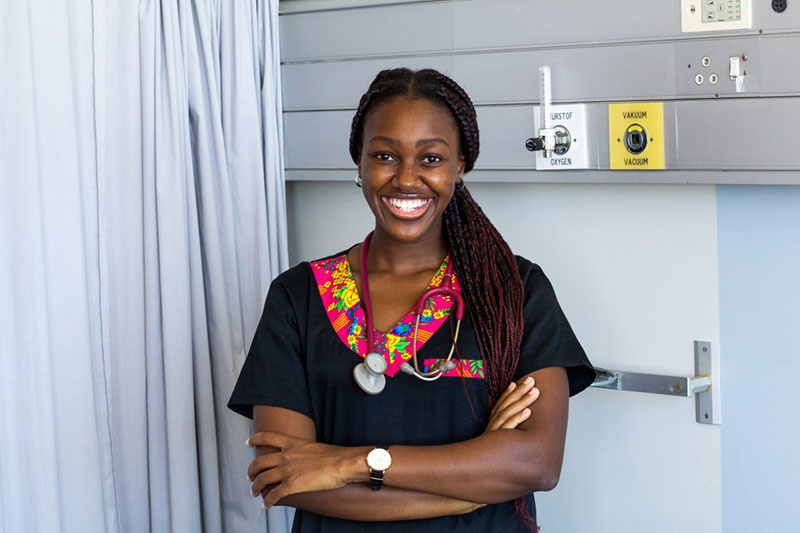
HS: What are your future plans?
VS: I’d like to launch an e-health medical app start-up, which I am currently working on. This has been designed to make general practitioner consultations convenient, safer and cheaper. I am looking forward to the roll-out of the drone delivery of medication in rural and township areas by the company I co-founded, RaAzi. My plan is to publish a series of children’s books for young, black, avid readers with themes focusing on identity, culture and self-love. I also plan to be the best doctor I can be for the patients and communities I serve after I graduate. I aspire to do a master’s in public health and, eventually, a PhD in clinical research. My dream is to start a foundation for young, black women offering mentorship in science, technology, engineering and mathematics (STEM) and health-related academia, entrepreneurship – and in their personal lives.
“I’m also looking at setting up a non-governmental organisation … that will offer free psychosocial support for children and young adults who are survivors of domestic and sexual abuse.”
ZN: My plan is to take the term “socially engaged student” to another level. According to the Western Cape MEC of community safety [Albert Fritz], Cape Town is facing a violence pandemic, and according to the global list determined by the annual Mexican Council for Public Security and Criminal Justice, Cape Town ranked eighth among the most violent cities in the world. Part of my plan therefore is to invent game-changing interventions that will help remediate the violent problems we face in the city. (I have already kick-started plans for innovative interventions.) I also want to contribute to developing leading-edge public and social policies that will address societal needs and social ills through research and implementation.
FD: Because of my interest in improving access to psychiatric healthcare in Africa’s healthcare systems, I’m hoping to join an international organisation in the future to work on revamping the structures of our policies. The aim is to ensure accessible, quality mental health services for underserved communities. I’m also looking at setting up a non-governmental organisation in the Kingdom of Eswatini that will offer free psychosocial support for children and young adults who are survivors of domestic and sexual abuse.
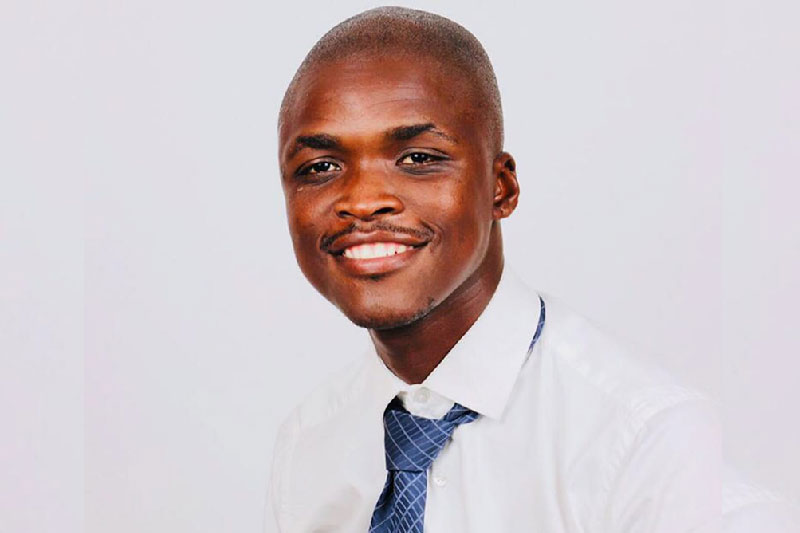
HS: Each group will work on one of four civic engagement themes: Pandemic Recovery and Resilience, Innovations in Gender Equity, Structured Listening Methods or Civic Engagement Futures. Which lights your fire?
VS: Definitely Pandemic Recovery and Resilience! Globally, this month marks one year since COVID-19 [control and prevention strategies were] introduced to our lives. We have experienced what was once the unimaginable but are now in a phase of the “new normal”. Although we have already experienced economic and social strife, sadly, the long-term aftermath is yet to be felt and [the effects] are slowly uncovering themselves one day at a time. Fortunately, this pandemic has allowed us the rare opportunity to pause and re-strategise. We need to go back to the drawing board to better plan our existing economic and social structures such that they are better developed and ready to withstand and protect us against the ... long-term effects of the pandemic. I’m looking forward to the discussions with the Pandemic Recovery and Resilience group on how this can be done as practically as possible.
ZN: I will be part of the Civic Engagement Futures [group], which lights my fire because working with people is my passion. This is a field that I have enormous experience in. I believe civic organisations are champions for social change. Amid COVID-19, civic engagement has proved to be essential as governments around the world struggled to work with their citizens to follow up on COVID-19 regulations.
FD: I was selected to be part of the working group focused on Structured Listening Methods. This is particularly interesting to me because of the heated political climate in contemporary society, where the voices of some are unheard in high-level political decision-making processes. Thus, how do we best ensure that everyone freely engages in governing our communities, without any form of discrimination?
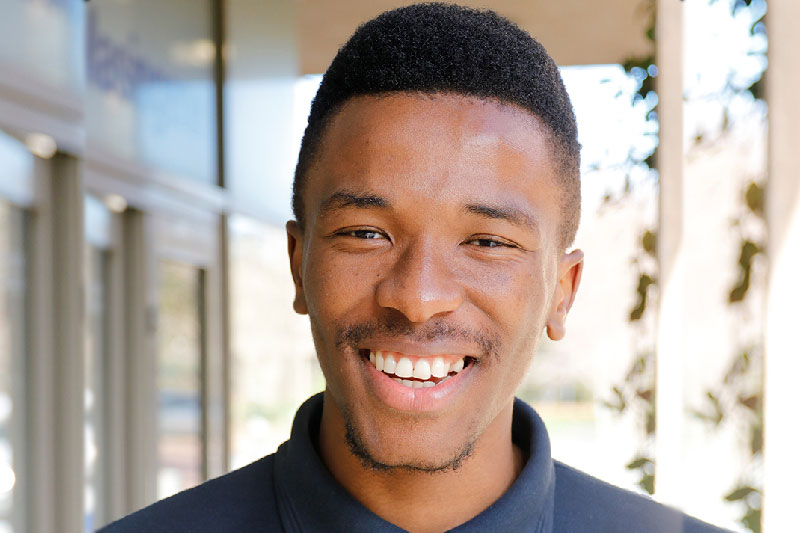
HS: What are your aspirations as young leaders?
VS: I hope to use my platforms and entrepreneurial ventures to significantly and holistically better the lives and communities of South Africans and the greater African continent, focusing on youth, women and people living in poorer socio-economic conditions. I aspire to make significant improvements in the dilapidated healthcare systems in many African countries, at cellular, individual and the larger community level. I hope to collaborate with other leaders from various sectors and communities to solve persisting problems in education and employment. My interests lie in healthcare – particularly healthcare access for all people, regardless of their socio-economic status, race, gender and ethnicity. I am also interested in medical science that is conducted by and for Africans, with a focus on our disease burden. I am passionate about entrepreneurship and solving our vast problems as a continent through international, inter-sectoral, creative, African-centred problem-solving. I am passionate about storytelling that highlights our important, significant narratives, especially those by women of colour.
ZN: I hope to broaden my knowledge of how to lead in different contexts. My interest is research, politics and leading government or university departments. I hope to lead a department one day so that I can help others and influence change by implementing state-of-the-art policies.
FD: Mental health is an essential component of economic growth as Africa drives towards becoming a knowledge economy, underpinning creativity, innovation and development. That’s where my interests lie. I hope to ensure accessible mental healthcare services for underserved communities. I also hope to work with NGOs invested in mental healthcare in the Kingdom of Eswatini to ensure that a comprehensive mental health policy framework is put in place; one that will include improved basic access to the management of mental health conditions in non-specialist primary care.
 This work is licensed under a Creative Commons Attribution-NoDerivatives 4.0 International License.
This work is licensed under a Creative Commons Attribution-NoDerivatives 4.0 International License.
Please view the republishing articles page for more information.








